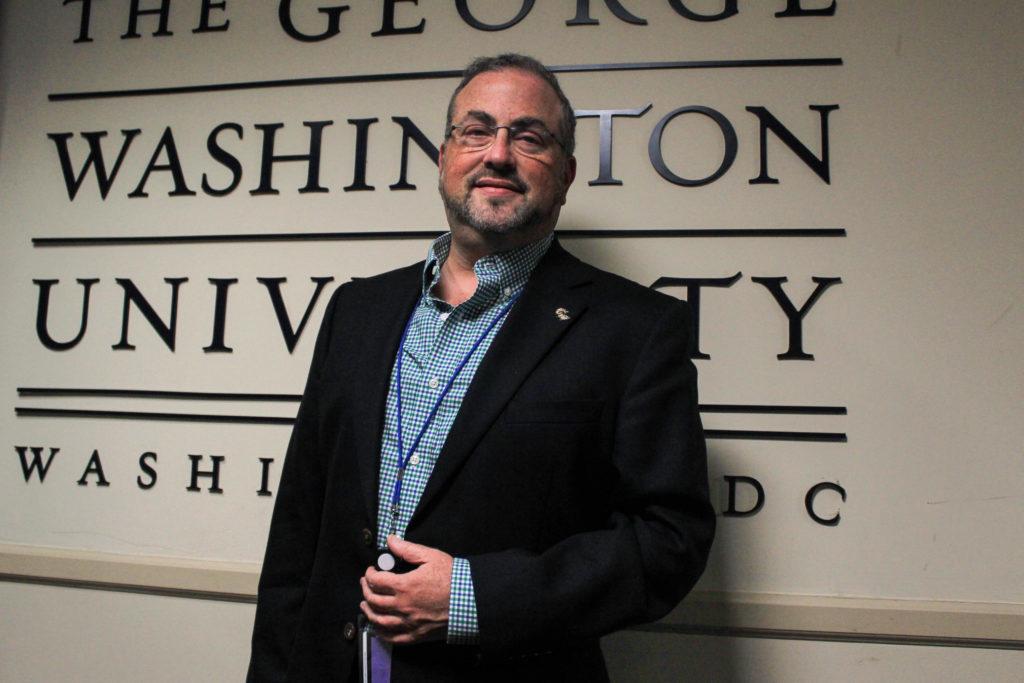On his second day at GW, the new leader of the Colonial Health Center said he plans to reach out to students who don’t utilize the office.
Glenn Egelman – who was named the first associate dean of the Colonial Health Center last week – said he has started meeting with students and faculty and plans to assess what kinds of students don’t usually visit the health center. Still, he said he hasn’t set overall priorities for the center because he wants to talk to staff and students before deciding on goals.
“I found out that you can’t come in with a preconceived notion of what you think the ideal is because you will fail,” he said. “You need to understand what the needs of the individual community are. I really need to see what is going on first before I can create that wish list.”
I found out that you can’t come in with a preconceived notion of what you think the ideal is because you will fail.
Egelman said that he plans to look at who in the student body is using the services and compare that data to the overall demographics of the University to see which populations aren’t coming in. He will then meet with student organizations that represent those groups to figure out why, and how to encourage them to start using the resources, he said.
“If there are certain communities on campus that have concerns, then I would love to meet with them and talk about what is going on,” he said.
Officials began the search in the fall after they said last spring that the CHC would rework the Mental Health Services director position and hire an executive director to oversee the entire center. The new position was one of several reorganizations after a series of budget cuts announced in May.
It has been 18 months since Silvio Weisner, the former director of MHS, stepped down after officials found he was not licensed to practice psychology in D.C. Gillian Berry has been the interim director since, but student affairs leaders said they wouldn’t begin a search to permanently fill the spot until they hired a CHC dean.
Egelman said he likes that the position is new because it allows him to take the role in a direction that would maximize his strengths, like working with students and staff to identify goals.
“We need to take a look at this integrated picture to bring staff together and we need to use communication and strategic planning to go ahead and create that best process for the GW campus,” he said.
Egelman will oversee Medical Services, MHS and Health Promotion and Prevention Services within the CHC. He said that when he started working in university health 22 years ago, people weren’t integrating their health centers, but many now understand that physical and mental health are related.
“This unit has already undergone a lot of this integration,” he said. “I kind of feel like I am the cherry on top of the sundae.”
This unit has already undergone a lot of this integration. I kind of feel like I am the cherry on top of the sundae.
Carol Sigelman, the chair of the department of psychology, led the search for the position with help from Keeling and Associates, a national search firm. The 11-member search committee included faculty and staff from the CHC, the provost’s office and the School of Medicine and Health Sciences.
Sigelman said in an email that the committee wanted someone who had strong administrative and leadership skills to integrate the health center with other departments. Egelman’s experience and ideas for collaborating made him the best candidate, she said.
“We expect that Dr. Egelman will be able to lead CHC toward a fuller integration of services and a stronger role at GW,” Sigelman said. “We hope to see more faculty, staff and students aware of CHC, getting the word out about its services and referring students to it.”
Egelman said he heard about the position through the national recruiting firm and that the hiring process took about four to six months. Egelman had multiple phone conversations with the national recruiter, then an interview with the screening committee and a couple days on campus for an evaluation where he meet students and officials, he said.
Egelman previously served as the executive director of the University of Cincinnati’s University Health Services, where he oversaw both medical and mental health services for roughly 45,000 students. He has also held health leadership roles at Bowling Green State University, Skidmore College, SUNY Stony Brook and University of Rochester.
We hope to see more faculty, staff and students aware of CHC, getting the word out about its services and referring students.
Egelman was the director of the Office of Medical Services at the United States Peace Corps from 2008 to 2011 and had several leadership roles there, where he said he worked with GW students. He most recently worked as a health consultant for Campus HealthCare Consultants.
“There has been a little gap in my resume where I didn’t work with students directly and I really missed that,” he said.
Peter Konwerski, the dean of student affairs, said the committee brought four candidates to campus for the vetting process. The committee and staff agreed that Egelman was the top candidate because of his experience and interest in students’ needs, he said.
“First and foremost, he is a student advocate and that came across loud and clear,” he said. “We, as a health center, have a great team but we and they also want to continue to evolve.”





